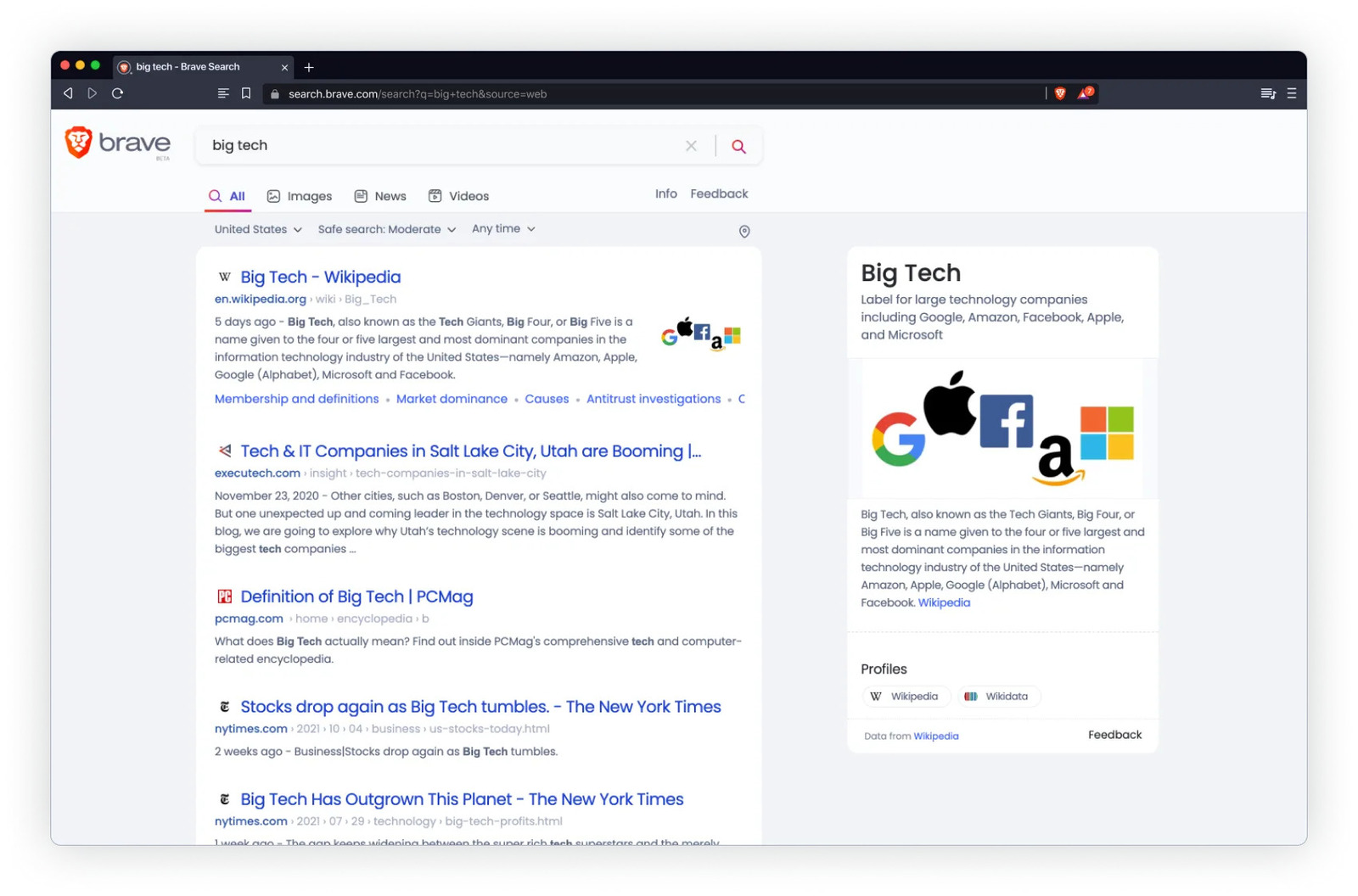Brave just announced that it is now exclusively using its own index for its search engine. In other words, it doesn’t rely on third-party solutions like Bing anymore.
When the company launched Brave Search in 2021, it mentioned that it relied on other providers for nearly 13% of its queries. A year later, that number was slashed to 7%.
“By default, Brave Search users will now receive 100% of results from the Brave Index, giving users fully independent results. As always, our results will preserve user privacy,” Brave said in a blog post.
The company said that things like the Web Discovery Project — which let people who use Brave’s web browser contribute anonymous data to build Brave’s index — helped it push towards self-reliance. Plus, Brave was concerned about the future of the Bing API — especially after Microsoft’s strengthened its partnership with OpenAI and announced a significant increase in API pricing for Bing’s index.
The company noted that users will still be able to use Google Fallback Mix — a feature that allows users to privately query Google in case Brave Search doesn’t have answers.
In addition to this, Brave announced its own search API but said that details about this program will be revealed in the future.
Brave is trying to use fewer solutions published by big tech companies to set itself apart. In March, the company launched a summarization feature that wasn’t powered by OpenAI’s tech.
In comparison, some of Brave’s competitors like DuckDuckGo and Neeva are still relying on sources like Bing. Though, the latter already plans to ditch Bing in a few years.
Brave Search doesn’t use Bing’s index anymore by Ivan Mehta originally published on TechCrunch











